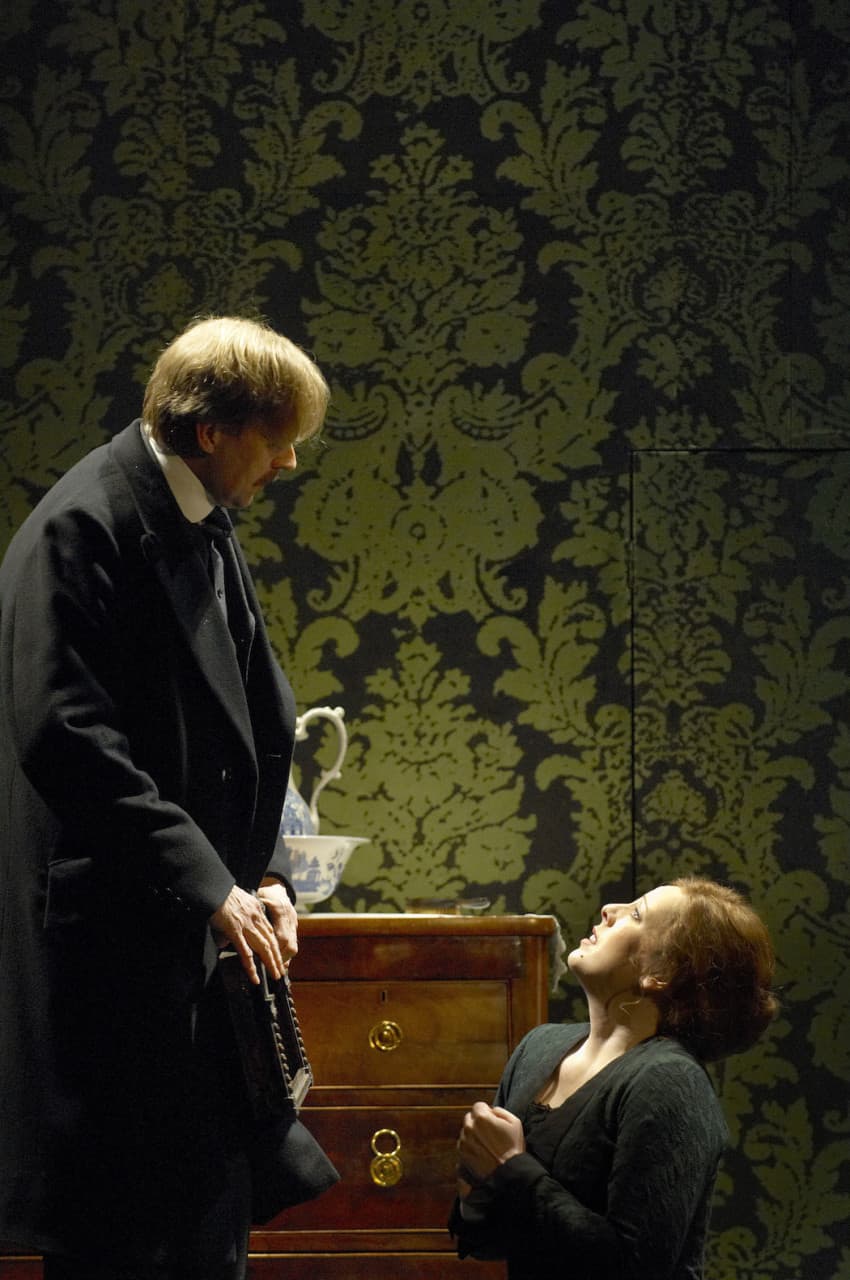Advertisement
With 'Kátya Kabanová,' BLO Brings Janácek Back To Boston; 'King Roger' Rules At BSO

Boston has largely ignored one of the great opera composers of the 20th century: Leos Janácek. In 1985, Sarah Caldwell staged for her Opera Company of Boston one of Janácek’s masterpieces, “The Makropoulos Case,” a sinister yet mesmerizing story of a glamorous 300-year-old woman desperately trying to hang on to her life, starring one of the most glamorous and versatile sopranos of the century, Anja Silja. Couturier Fiandaca designed her costumes. The production was unforgettable and it got rave reviews. But it drew small audiences. In all my years of living in Boston, I’ve only seen one other staged production of a Janácek opera here — his heartbreaking animal fable "The Cunning Little Vixen," in an imaginative and wonderfully performed student production at the Boston Conservatory two years ago — sung in the original Czech! Even the Met eventually discovered Janácek and has done several of his greatest operas.
At the Boston Lyric Opera, our largest opera company, a plan to do a series of Janácek operas was scotched years ago by the previous administration. But BLO has now finally gotten around to the Czech master. The third production of its 2014-2015 season will be the provincial romantic tragedy “Kátya Kabanová” (Shubert Theatre, March 13-22), one of the composer’s most beautiful and powerful scores, staged by Tim Albery and conducted by David Angus, the team responsible for BLO’s single most inspired production, Peter Maxwell Davies’s “The Lighthouse,” at the JFK Library in 2012.

Except for Boston favorite Sandra Piques Eddy, as Varvara, the foundling who is finally able to escape the oppression of the family matriarch, the cast will be largely new to Boston. Singing the title role will be Cuban-American soprano Elaine Alvarez, a 2005 winner of the Marilyn Horne Song Competition (the Met’s Isabel Leonard was a co-winner that year). Tim Page, in The Washington Post, reviewing a 2007 recital, called her “a charming artist—with a delightfully warm stage presence and a healthy, hearty and agile voice that is still coming into flower.” We’ll soon discover whether the full-flowering has already occurred. Here’s a YouTube clip of Alvarez’s Mimi from 2010:
As Kabachina, the possessive mother-in-law, we’re getting Elizabeth Byrne, whom I remember just scraping by as the last-minute substitute for Deborah Voigt in two of her three performances as Senta in the BSO’s otherwise magnificent "Flying Dutchman" under James Levine in 2013. Byrne won strong reviews for her Brünnhilde in Albery’s 2003 Ring Cycle for the Scottish Opera. Here’s a YouTube clip from that year, with Byrne singing next to what seems like a large baked potato:
I’ll be especially glad to reacquaint myself with tenor Raymond Very, whose beautiful singing impressed me in a featured role in the 1999 world premiere of Tod Machover’s "Resrurrection" at the Houston Grand Opera.
I’m sorry to report that the performances of "Kátya Kabanová" will be sung in English. But I wouldn’t miss it under any circumstances.
Here’s a link to the entire opera in a production by the Dutch National Opera (with subtitles in Dutch), Edo de Waart conducting the late Susan Chilcott as Kátya and the legendary Josephine Barstow as Kabachina:
Another exciting opera from Eastern Europe, the Polish composer Karol Szymanowski’s 1926 “King Roger,” will have its Boston Symphony Orchestra debut at Symphony Hall, March 5-7. It will feature the Polish baritone and Metropolitan Opera star Mariusz Kwiecien, who has made a huge success in the title role from Paris to Santa Fe. Charles Dutoit conducts this luxuriously seductive and moving score, loosely based on Euripedes’s “The Bacchae.” It will be sung in Polish (as it should be), with English supertitles.
Lloyd Schwartz is the music critic for NPR’s Fresh Air and senior editor of Classical Music for New York Arts. Longtime classical music editor of The Boston Phoenix, he was awarded the Pulitzer Prize for criticism in 1994. He is the Frederick S. Troy Professor of English at the University of Massachusetts Boston. Follow him on Twitter @LloydSchwartz.


